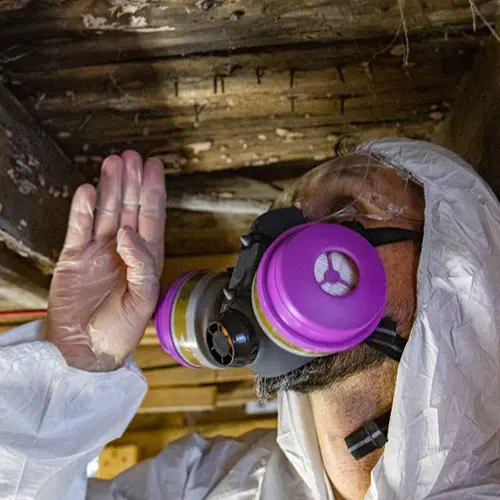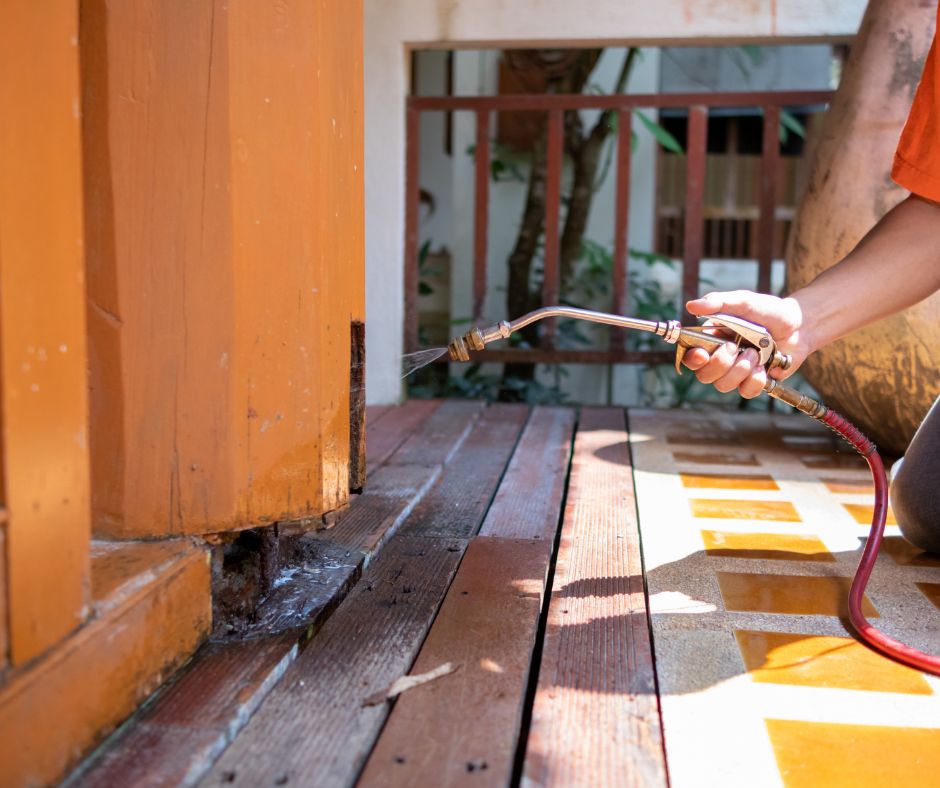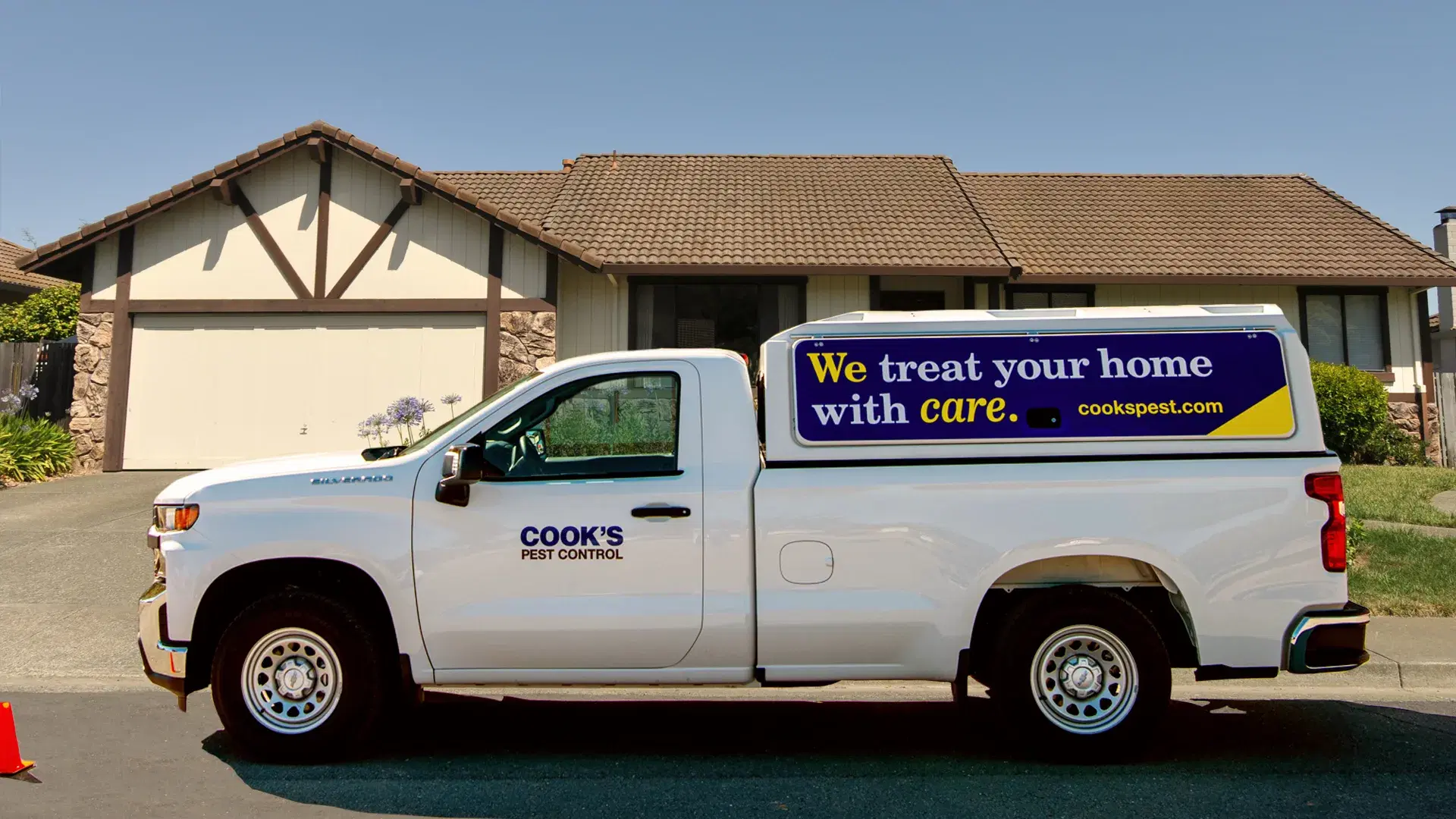Find the Most Effective Ant Exterminator Near Me for Quick and Reliable Solutions
Uncover the Importance of Bug Control in Maintaining a Healthy And Balanced Setting and Treatment Strategies

The Duty of Parasites in Ecological Communities
Pests, often viewed solely as hassles, play a complex function in ecosystems that is important for maintaining eco-friendly balance. They add dramatically to various environmental procedures, including pollination, vitamins and mineral biking, and bug control. For instance, numerous insect varieties, such as and butterflies, are necessary pollinators for a vast array of plants, which in turn supports biodiversity and food manufacturing.
Additionally, pests work as prey for countless killers, developing a crucial web link in food webs. This connection ensures the survival of different types and helps manage populations within ecological communities (Termite treatment Port Charlotte). Furthermore, decomposer bugs, such as specific beetles and fungi, are crucial in damaging down natural matter, therefore enhancing dirt and promoting nutrient recycling.
Conversely, while bugs can be useful, their overpopulation or intrusion into non-native environments may interfere with these environmental features. This complexity emphasizes the value of understanding insect dynamics, as reliable pest management techniques have to consider both their eco-friendly roles and prospective effect on human activities. Stabilizing pest existence while reducing damage is essential for protecting the stability of environments and making certain agricultural efficiency.
Health Risks Related To Bugs
The presence of parasites in numerous atmospheres extends past their ecological roles, as they also posture substantial wellness threats to pets and people. Numerous pests, consisting of rodents, insects, and parasites, are providers of conditions that can have serious wellness ramifications. Rats are recognized to transfer hantavirus and leptospirosis, both of which can lead to extreme respiratory system and kidney concerns, respectively.
Pests such as ticks and mosquitoes are well known for spreading vector-borne illness like malaria, dengue fever, and Lyme disease. These diseases can cause high morbidity and mortality rates, particularly in prone populaces. Additionally, pests like bedbugs and cockroaches can worsen allergic reactions and bronchial asthma, contributing to respiratory system issues in individuals, specifically those with pre-existing problems.
In addition, the existence of pests can bring about psychological tension and discomfort, affecting general well-being. Contamination of food and surface areas by pest droppings and continues to be can bring about foodborne health problems, highlighting the value of keeping hygienic problems. Understanding the health and wellness risks associated with insects is crucial in identifying the need of efficient insect administration strategies to secure human and animal health and wellness.

Benefits of Reliable Parasite Control
Effective parasite control is crucial for keeping a healthy and balanced and safe environment, as it continually alleviates the many dangers associated with parasite problems. One of the key advantages of effective parasite administration is the decrease of health threats.
Additionally, efficient insect control safeguards residential property and structures from damage. Several pests, like termites and woodworker ants, can trigger extensive architectural damage that may require costly repairs. By proactively managing these infestations, home owners and businesses can safeguard their financial investments.
An additional considerable benefit is the renovation of overall high quality of life. A pest-free setting contributes to mental well-being and decreases stress and Clicking Here anxiety related to invasions. Effective bug control promotes a much safer environment for pet dogs and youngsters, ensuring that homes remain sanctuaries totally free from disease-causing organisms and hazardous chemicals.
Common Insect Control Techniques

In the realm of pest monitoring, different techniques are used to deal with infestations properly. These methods can be broadly classified into 3 main strategies: cultural, mechanical, and chemical controls.
Social control includes modifying techniques to decrease parasite survival, recreation, and facility. This may consist of crop turning, proper sanitation, and habitat control, which jointly create a setting less favorable to pest spreading.
Mechanical control utilizes physical approaches to remove pests (Termite treatment Port Charlotte). Techniques such as vacuums, barriers, and traps are commonly used to directly eliminate insects from an area. This method is especially efficient for handling rodents and bugs without using unsafe chemicals
Chemical control involves the application of chemicals to take care of parasites. These materials can be classified right into herbicides, fungicides, and pesticides, each targeting certain types of insects. It is vital to utilize these chemicals sensibly, adhering to safety standards and laws to lessen potential injury to non-target varieties and the atmosphere.
Each insect control technique has its benefits and constraints, and often, an incorporated strategy incorporating several methods generates the finest lead to keeping a pest-free atmosphere.
Sustainable Parasite Administration Practices
Sustainable pest monitoring methods encompass a series of methods developed to decrease ecological influence while successfully controlling parasite populations. These methods focus on making use of eco-friendly methods over chemical pesticides, consequently decreasing the threat of damage to non-target varieties, including beneficial pests, wildlife, and people.
Integrated Insect Monitoring (IPM) is a cornerstone of sustainable methods, combining biological, social, mechanical, and chemical methods to handle parasites. Biological control includes presenting natural predators or bloodsuckers to subdue pest populations. Cultural practices, such as crop turning and polyculture, interrupt pest life cycles and improve ecosystem durability.
Mechanical approaches, such as catches or barriers, can properly stop pest access without chemical intervention. Furthermore, preserving healthy and balanced communities via proper soil administration, plant health and wellness, and biodiversity can naturally reduce insect problems.
Education and learning and recognition are crucial original site components, encouraging communities and people to identify parasite threats early and implement preventive steps. Termite treatment Port Charlotte. By fostering an alternative method that balances pest control with eco-friendly honesty, lasting bug administration methods not only safeguard crops and frameworks however also add to a healthier environment for future generations
Conclusion

Comprehending the health threats connected with insects is crucial in acknowledging the necessity of effective parasite monitoring methods to secure animal and human wellness.
Effective bug control is vital for preserving a secure and healthy and balanced environment, as it continually reduces the countless dangers linked with insect problems.Integrated Insect Management (IPM) is a cornerstone of lasting methods, incorporating biological, social, mechanical, and chemical go to this site strategies to take care of pests. By comprehending the duty of insects, identifying associated health threats, and employing diverse therapy strategies, a sustainable method to pest monitoring can be achieved. Integrated Insect Monitoring (IPM) stresses a holistic method that minimizes harm to valuable organisms while efficiently managing parasite populations.